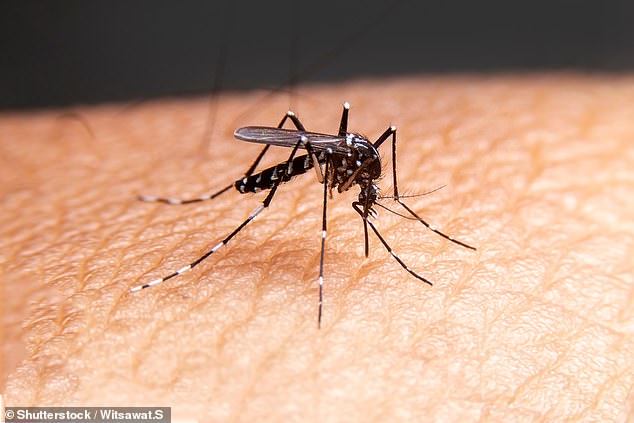Ross River virus surge following ‘sharp rise’ in mosquito numbers – with thousands of people expected to get infected
Thousands of people could become infected with the Ross River virus in the coming weeks, health authorities have warned.
The disease is spread through mosquito bites and “very high” levels of the virus have already been found in mosquitoes across the state, Queensland’s chief health officer John Gerrard said.
“It’s a very sudden uptick, a very sudden increase,” he told reporters on Monday.
Thousands of people could become infected with the Ross River virus in the coming weeks, health authorities warn (file photo)
There have been 31 cases detected in mosquito traps in the Brisbane, Wide Bay, Bundaberg, Banana, Gold Coast, Fraser Coast, Livingstone, Mackay, Sunshine Coast and Moreton Bay regions.
That is more than the total number of positive falls recorded in the summer months 2019-2020.
In 2020, there were 3,381 cases of Ross River virus in Queensland.
“It is very concerning that we are seeing a high number of detections so early in the season,” Dr Gerrard said.
There have been 64 Ross River cases reported in Queensland this year and the number is expected to skyrocket.
“It will probably be thousands,” he said.
“We’re talking about a large number of Queenslanders who will get it.”

The disease is spread through mosquito bites and ‘very high’ levels of the virus have already been detected in mosquitoes across Queensland
Symptoms of Ross River virus include fever, swollen and painful joints, and rash.
There is no vaccine or specific antiviral treatment, so the best way to prevent infection with Ross River virus is to avoid mosquito bites.
Dr. Gerrard recommended wearing insect repellent, avoiding outdoor activities at dusk and dawn, when many mosquito species are most active, and wearing clothing that covers arms, legs and feet.
